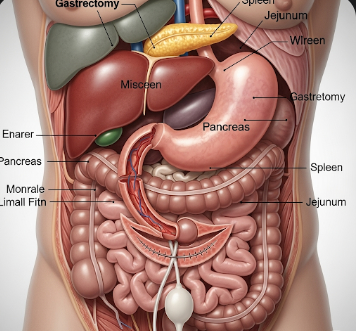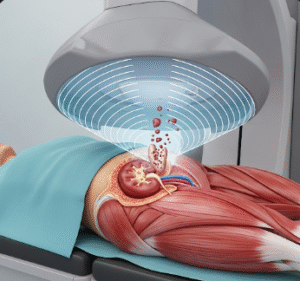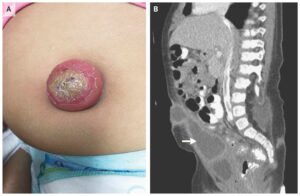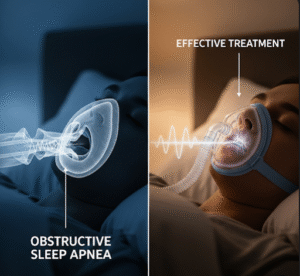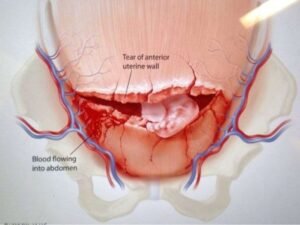Overview
Gastrectomy is a surgical procedure in which part or all of the stomach is removed. It is commonly performed to treat stomach cancer, severe ulcers, noncancerous growths, bleeding, or rare genetic conditions. Depending on the case, the surgery may involve removing a portion (partial gastrectomy), the entire stomach (total gastrectomy), or the lower/upper part (sleeve or subtotal gastrectomy).
South Korea is a global leader in stomach cancer treatment and gastrectomy surgery, with some of the highest survival rates in the world for gastric cancer. Thanks to advanced surgical techniques, including laparoscopic (minimally invasive) and robotic-assisted gastrectomy, Korean hospitals provide precise, safe, and effective outcomes for both domestic and international patients.
What is Gastrectomy?
A gastrectomy is the surgical removal of part or all of the stomach. The specific type depends on the disease and its extent:
- Partial Gastrectomy → Only a portion of the stomach is removed.
- Total Gastrectomy → The entire stomach is removed, and the esophagus is connected directly to the small intestine.
- Sleeve Gastrectomy → A long, tube-shaped stomach “sleeve” is created by removing most of the stomach, often for weight loss (bariatric surgery).
- Subtotal or Distal Gastrectomy → The lower part of the stomach is removed.
In Korea, gastrectomy is often performed using laparoscopic or robotic techniques, which are less invasive and allow faster recovery compared to traditional open surgery.
What are the benefits?
Gastrectomy offers several important benefits:
- Effective cancer treatment → Removes tumors and affected tissues.
- Relief from chronic ulcers → Especially when non-surgical treatments fail.
- Weight management → Sleeve gastrectomy helps patients with morbid obesity.
- Prevention of complications → For inherited conditions with high cancer risk.
- Improved survival rates → Especially for stomach cancer when treated early.
- Minimally invasive options → Korea is a pioneer in robotic and laparoscopic gastrectomy, reducing pain and recovery time.
Procedure Details
1) How should I prepare for Gastrectomy?
Preparation is crucial to ensure safety and success:
- Medical tests: Blood tests, chest X-ray, CT scan, endoscopy, and sometimes PET scan.
- Nutritional preparation: Patients may need to meet with a dietitian to plan post-surgery nutrition.
- Fasting: No food or drink for several hours before surgery.
- Medication review: Stop blood-thinning medications (aspirin, warfarin) as advised.
- Smoking/alcohol: Avoid to reduce surgical risks.
- Hospital stay planning: Arrange for a hospital stay of 5–10 days, depending on surgery type.
2) What happens during the procedure Gastrectomy?
Gastrectomy is usually performed under general anesthesia and can take 2–4 hours. Steps include:
- Incision type: Either open surgery (large incision) or minimally invasive (laparoscopic/robotic with small cuts).
- Stomach removal: The surgeon removes the diseased portion of the stomach.
- Partial gastrectomy → Only part is removed.
- Total gastrectomy → Entire stomach removed.
- Reconstruction: The surgeon reconnects the digestive system. For example:
- In partial gastrectomy, the remaining stomach is connected to the small intestine.
- In total gastrectomy, the esophagus is connected directly to the small intestine.
- Drain placement: A temporary drainage tube may be placed.
- Minimally invasive approach: In Korea, robotic and laparoscopic gastrectomies are commonly used, reducing scars, blood loss, and recovery time.
3) What happens after a Gastrectomy?
After surgery, patients will stay in the hospital for monitoring and recovery:
- ICU or recovery room for close observation.
- IV fluids and nutrition initially (no food by mouth).
- Gradual diet progression → from liquids to soft foods, then solid foods.
- Pain management with medications.
- Hospital stay → Typically 7–10 days for open surgery, 4–6 days for laparoscopic/robotic surgery.
- Post-surgery care: Patients may need vitamin B12 injections (especially after total gastrectomy) and long-term dietary adjustments.
Risks / Benefits
Risks
Like any major surgery, gastrectomy carries risks:
- ➤ Bleeding and infection
- ➤ Blood clots
- ➤ Leakage from connections (anastomosis leak)
- ➤ Digestive problems such as dumping syndrome (food moving too quickly into the intestine)
- ➤ Vitamin and nutrient deficiencies
- ➤ Weight loss and loss of appetite
Benefits
- ➤ Lifesaving treatment for stomach cancer
- ➤ Relief from ulcers and severe stomach disease
- ➤ Effective weight-loss surgery (sleeve gastrectomy)
- ➤ Better quality of life once recovery is complete
- ➤ Advanced surgical options in Korea mean safer, less invasive outcomes
Recovery and Outlook
Recovery after gastrectomy depends on the type of surgery:
- Hospital stay: 4–10 days depending on method (robotic vs open).
- Return to normal activity: 4–6 weeks.
- Dietary changes: Patients must adapt to smaller meals, avoid high-sugar foods, and may require lifelong supplements.
- Outlook for cancer patients: Korea has some of the highest 5-year survival rates in the world for gastric cancer, thanks to early detection and advanced surgical methods.
- Long-term monitoring: Regular follow-ups, imaging, and nutritional assessments are essential.
When To Call the Doctor
After gastrectomy, seek immediate medical attention if you experience:
- ⚠️ Severe abdominal pain or swelling
- ⚠️ Fever, chills, or signs of infection
- ⚠️ Difficulty swallowing or vomiting blood
- ⚠️ Rapid weight loss or malnutrition symptoms
- ⚠️ Persistent nausea, diarrhea, or dehydration
Best Korea Option / Process
Korea is among the best countries in the world for gastrectomy, especially for stomach cancer treatment.
- Advanced surgical techniques: Korea leads in laparoscopic and robotic gastrectomy, which reduce pain, scarring, and hospital stay.
- Early diagnosis programs: Nationwide gastric cancer screening allows earlier, more successful surgeries.
- Expert surgeons: Korean surgeons perform thousands of gastrectomies annually, ensuring exceptional expertise.
- Integrated care: Teams include oncologists, surgeons, dietitians, and rehabilitation specialists.
- Affordable excellence: Costs are significantly lower compared to the US, Japan, or Europe, with world-class quality.
- Top hospitals:
- Seoul National University Hospital
- Asan Medical Center
- Samsung Medical Center
- Yonsei Severance Hospital
👉 For international patients, Korea offers cutting-edge treatment, high survival rates, and affordable care, making it the top choice for gastrectomy worldwide.

